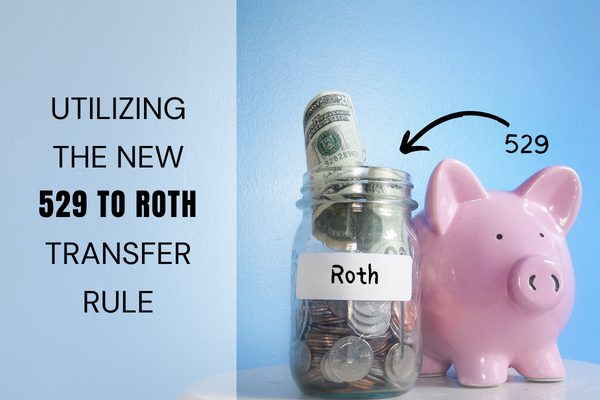Student Loans Got You Down?

Market Perspectives – July 2018
July 10, 2018
Market Perspectives – August 2018
August 14, 2018
By: Abby Bennett, CFP®
I get it…I was one of the 42 million people sharing in the $1.37+ trillion of federally-funded student loan debt. I also know that paying off my loans was more satisfying than drinking that first glass of wine after completing the Whole30 diet. Yes, it was that good – and I want that for you.
When it comes to student debt, I most often hear things like “I just don’t know what to do” and “I’m tired of making the payments, I wish I could just pay them off.” Instead of dwelling in a state of powerlessness, consider a different strategy – as Eleanor Roosevelt said, “It takes as much energy to wish as it does to plan.” And I have good news! There are numerous options available to help consumers tackle this burden.
The bad news? Determining what those options are can be pretty confusing.*
Should you refinance or consolidate to lower your interest rate? How will this affect the tax deductibility of the interest?
Does a special payment plan makes sense, and if so, which one?
Are you eligible for the Public Student Loan Forgiveness (PSLF) program? If not, what does the potential tax bill look like on forgiven balances that don’t qualify for special treatment?
What are the risks associated with each option? What sacrifices must be made?
It probably feels easier to stick to the minimum payments and put it out of your mind. Is it even worth the effort of coming up with a plan, let alone sticking to it?
…Remember that feeling of satisfaction I mentioned? It’s worth it.
You may find that, after going through all your options, your best choice is simply to make a few temporary lifestyle changes and increase your monthly payment, or spend your bonus on your loans instead of a vacation. Small changes could save you thousands of dollars in interest, even on the average borrower’s student loan balance of almost $30,000.
To pay off a $30,000 loan with a 6.8% interest rate over 10 years requires a $345 monthly payment (you’d pay over $11,000 in interest in that time period, for a loan total of over $41,000). If you pay the loan off in 5 years, you could save over $6,000 of interest. Pay it off in 3 years and you could save over $8,200. That’s a nice chunk of change left in your pocket as a result of short-term discipline. If your student debt burden is substantially higher, the value of an accelerated payoff strategy can be even greater.
Folks often ask us whether they should pay off debt, save for retirement or a down payment on a home, or create a college fund for their children (to minimize their future debt burden). Prioritizing can be difficult and each person’s situation is different. Often, the decision is just as emotional as it is mathematical – peace of mind is worth a lot. You have to decide what that looks like for you.
There are plenty of resources available that can take you through your options. If you work with a financial planner, I suggest you start there – they should be able to walk you through this analysis. If you’re more of a financial DIY-er, I suggest starting here. This website also has good information and can connect you to lenders that offer refinancing options.
Whatever you do, have a plan. Though your strategy may change, your likelihood of success improves if you’re aiming for a specific goal. Yogi Berra said it well: “If you don’t know where you are going, you’ll end up someplace else.” Cheers!
*Stay tuned for the next blog post in our Student Loan series, where we discuss one of the questions listed above.
Abby Bennett, CFP® is a financial planner in Charlotte, NC. She provides financial advice to families and business owners, and specializes in financial planning for engineers and tech professionals. Click here to learn more about Abby.
Carolinas Investment Consulting is not affiliated with any of the websites linked in this commentary. The information published herein is provided for informational purposes only, and does not constitute an offer, solicitation or recommendation to sell or an offer to buy securities, investment products or investment advisory services. All information, views, opinions and estimates are subject to change or correction without notice. Nothing contained herein constitutes financial, legal, tax, or other advice. The appropriateness of an investment or strategy will depend on an investor’s circumstances and objectives. These opinions may not fit to your financial status, risk and return preferences. Investment recommendations may change and readers are urged to check with their investment advisors before making any investment decisions. Information provided is based on public information, by sources believed to be reliable but we cannot attest to its accuracy. Estimates of future performance are based on assumptions that may not be realized. Past performance is not necessarily indicative of future returns.



